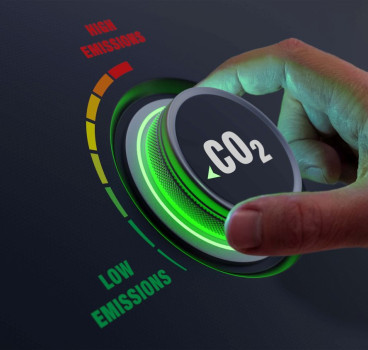Perhaps it’s time we gave plastics a better press
Plastics is rapidly becoming a dirty word for environmentalists across the globe who are now laying the blame squarely on the shoulders of this ubiquitous material for polluting the world's oceans.
In reality, only around 4% of the planet's oil production is converted into plastics but because it's a product that tends to stick around for a long time, it is seen to be anything but green.
The construction industry would certainly be the poorer without the massive range of largely maintenance free plastic based materials, used across a huge range of products such as rainwater goods, doors, windows, cladding – the list is almost endless.
But at some time those building materials will need to be replaced and we must also take into account the huge amount of plastic based packaging such products arrive in – so what happens next? Well some will go into landfill and it will take up to 1,000 years to rot, much to the annoyance of the ultra-green, but the construction industry is doing its bit in a remarkable number of innovative and ground breaking ways.
In India they are now actively looking at recycling plastic waste into new roads. They have found that they can use 1.5 tonnes of waste plastic mixed with bitumen for every new kilometre of road laid and the bonus is – that such roads – last twice as long as conventional asphalt.
India's Central Road Research Institute (CRRI) claim that bitumen mixed with plastic or rubber improves the quality and life of roads although construction costs using this method were around 6% higher. However, such a surface also delivered more than satisfactory performance, good skid resistance, and good texture value, was stronger and provided a lesser amount of progressive unevenness.
More generally, plastics have a very good environmental profile which is why we should give the industry much more credit for being kinder to the environment. In construction, in particular, plastics have a huge role to play.
If all buildings were upgraded to optimal standards across Europe using plastic based insulation, according to industry sources, then it is estimated that 460 million fewer tonne's of CO2 would be generated each year. Plastic pipes use less energy in manufacture compared to concrete or iron, are lighter and more reliable on a whole range of construction situations
It must also be emphasised that plastics recycling takes place on a significant scale in the UK and the rest of the worldt to ensure that it can used again and again.
So maybe we should be looking more kindly at the plastics industry which is really doing its bit to protect the environment as much as it can - and perhaps be placing the blame more firmly on the millions of anti-social people who carelessly discard their plastic waste each year expecting mother nature and the rest of us to clear up their mess.
By Talk Builder Follow me on Twitter @TalkBuilder
Additional Blogs

The unseen carbon cost of late design changes
There is a particular moment in almost every project when someone says, “It’s only a small change.” A wall shifts half a metre. A grid tightens. A plant room grows. A façade is reconfigured to...
Read moreWhen compliance becomes the enemy of good design
There is a particular comfort in compliance. It comes in the form of certificates, checklists and sign-offs. It reassures clients, satisfies insurers and protects professionals from liability. In an...
Read more

The construction industry’s addiction to new acronyms
There are two certainties in construction. One is that every project will take longer than the programme suggests. The other is that, somewhere between concept and completion, someone will introduce...
Read more